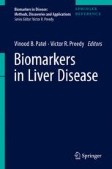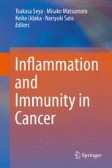Search
Search Results
-
Identification of the Pathogenic Biomarkers for Hepatocellular Carcinoma Based on RNA-seq Analyses
The purpose of this study was to explore potential biomarkers in the diagnosis of hepatocellular carcinoma (HCC) based on RNA-seq. The microarray...

-
Antibiotics
In this chapter we discuss the drug class of antibiotics. There is a wide range of antibiotics available to treat a wide range of infections and...
-
Translational Research in Oncology
Cancer proteomics is a diverse and challenging field. It provides the promising tool that aids in the understanding of the disease, yet early-stage...
-
Integrative analysis of DNA methylation and gene expression reveals hepatocellular carcinoma-specific diagnostic biomarkers
BackgroundHepatocellular carcinoma (HCC) is the one of the most common cancers and lethal diseases in the world. DNA methylation alteration is...

-
In vitro modeling of hepatocellular carcinoma molecular subtypes for anti-cancer drug assessment
Tractable experimental model that accounts for inter-tumor molecular heterogeneity is a key element of anti-cancer drug development. Hepatocellular...

-
Snake Venom Proteinases as Toxins and Tools
Proteinases from snake venoms have long been fascinating targets due to their structural, functional, and domain architectural diversities. Depending...
-
Transhepatic arterial infusion chemotherapy using a combination of miriplatin and CDDP powder versus miriplatin alone in the treatment of hepatocellular carcinoma: a randomized controlled trial
BackgroundBased on promising results from a Phase I study of hepatic arterial infusion chemotherapy using a combination of miriplatin and cisplatin...

-
Squamous Cell Carcinoma Antigen-Immunoglobulin M (SCCA-IgM) as Biomarker in Liver Disease: Biological Aspects and Clinical Applications
Chronic liver diseases and cirrhosis are an increasing cause of morbidity and mortality in Western countries. In particular, liver cirrhosis can be...
-
Moojenactivase, a novel pro-coagulant PIIId metalloprotease isolated from Bothrops moojeni snake venom, activates coagulation factors II and X and induces tissue factor up-regulation in leukocytes
Coagulopathies following snakebite are triggered by pro-coagulant venom toxins, in which metalloproteases play a major role in envenomation-induced...

-
Squamous Cell Carcinoma Antigen-Immunoglobulin M (SCCA-IgM) as Biomarker in Liver Disease: Biological Aspects and Clinical Applications
Chronic liver diseases and cirrhosis are an increasing cause of morbidity and mortality in Western countries. In particular, liver cirrhosis can be...
-
Combination of miR-125b and miR-27a enhances sensitivity and specificity of AFP-based diagnosis of hepatocellular carcinoma
Non-invasive biomarkers of early-stage hepatocellular carcinoma (HCC) could offer immense benefits. Currently available tumor markers for HCC are of...

-
Plasma microRNA might as a potential biomarker for hepatocellular carcinoma and chronic liver disease screening
Our study aims to investigate the expression signature of plasma microRNA-106b (miRNA-106b, miR-106b) in hepatocellular carcinoma (HCC) patients and...

-
Biomarkers of Cancer
Any measurable specific molecular alteration of a cancer cell either on DNA, RNA, protein, or metabolite level can be referred to as a cancer...
-
Development of Glypican-3-Targeted Cancer Immunotherapy
Glypican-3 (GPC3) is an onco-fetal antigen expressed in the placenta and embryonic liver and over-expressed in human hepatocellular carcinoma (HCC)....
-
Proteomic and metabonomic biomarkers for hepatocellular carcinoma: a comprehensive review
Hepatocellular carcinoma (HCC) ranks third in overall global cancer-related mortality. Symptomatic presentation often means advanced disease where...

-
Pro-angiogenic cytokines for prediction of outcomes in patients with advanced hepatocellular carcinoma
Background:We previously reported that expressions of the pro-angiogenic cytokines angiopoietin-2 (Ang-2), follistatin, granulocyte...

-
Serum heat shock protein 27 levels in patients with hepatocellular carcinoma
Levels of serum heat shock protein 27 (sHsp27) have been studied in numerous cancer types, but their potential relevance in patients with...

-
Blood Constituents and Safety Pharmacology
The coagulation cascade consists of a complex network of interactions resulting in thrombin-mediated conversion of fibrinogen to fibrin, which is one...
-

